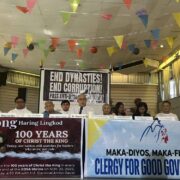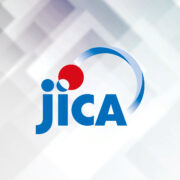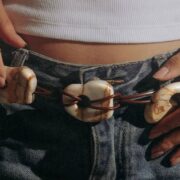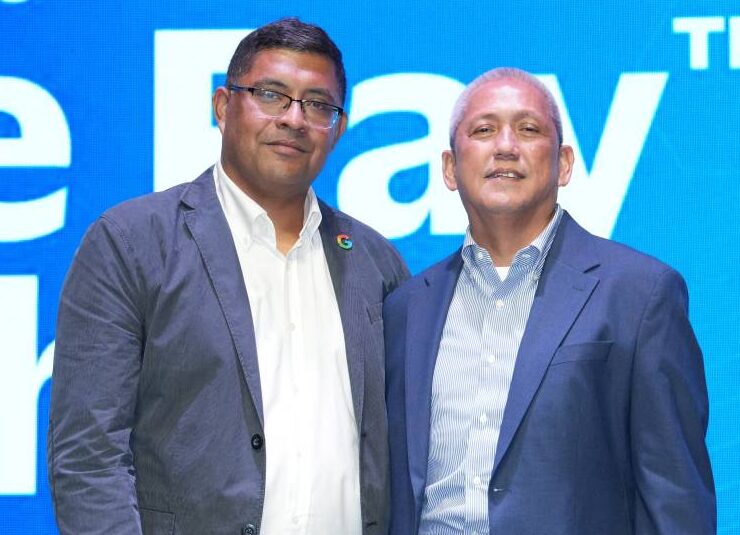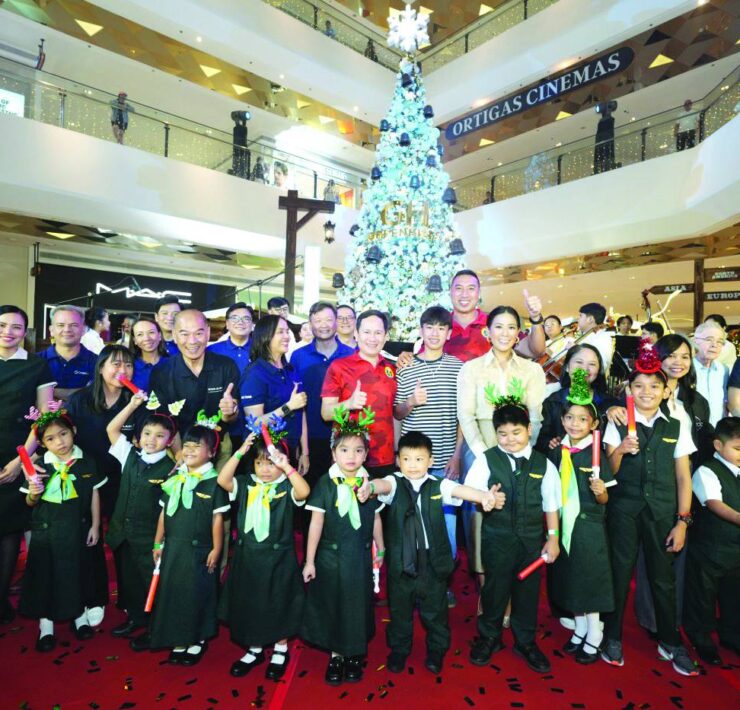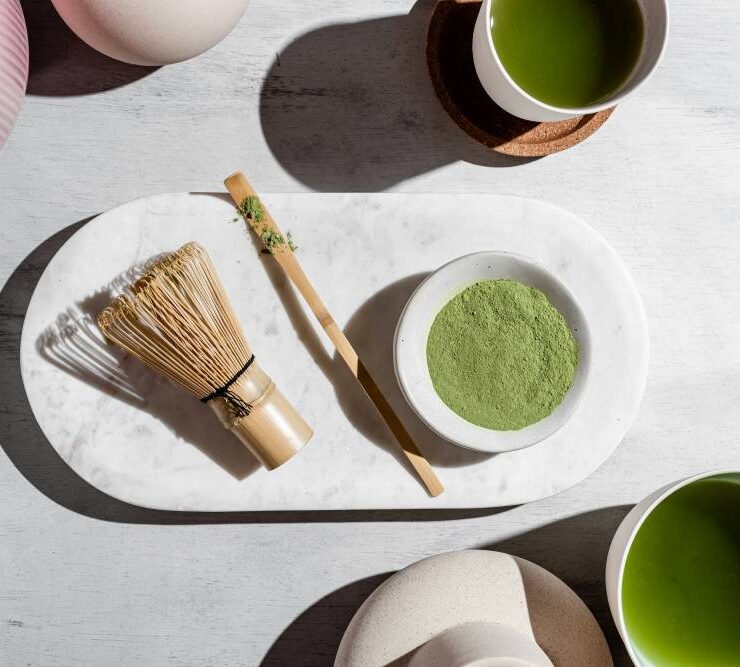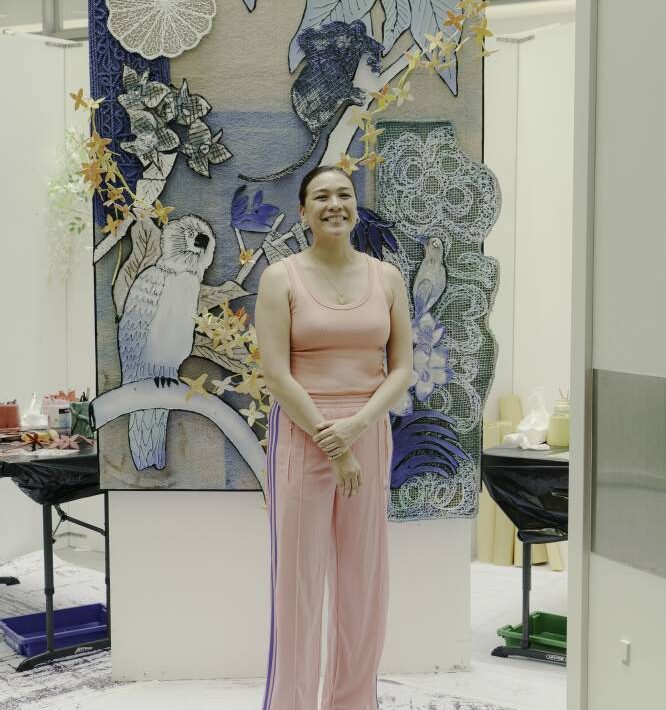Learning a delicate art: Your unwanted makeup’s meaningful second act
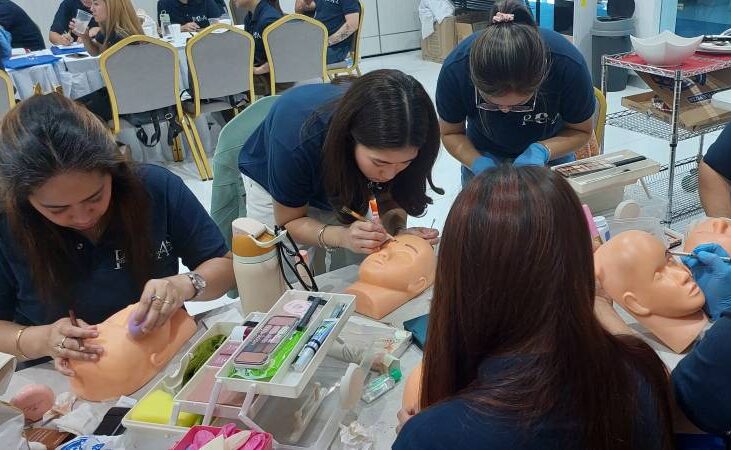
Regularly cleaning your makeup kit is a must for hygiene and skin health. The practice also helps eliminate accidental usage of expired products and those you only used once because you experienced an allergic reaction or a disappointing outcome.
But before tossing out your preloved cosmetics for disposal, you may consider donating them. Yes, those undesirable products can still be used, more so for the benefit of students whose training at an embalming school includes learning how to apply makeup for the dead.
“Our students come from all walks of life,” says Sarah Dychangco-Reyes, owner and president of Pacific Center for Advanced Studies (PCAS). Among them are children of funeral home owners, professionals like doctors, and career shifters hoping to land a job abroad, she adds.
“But there are also some who come from far-flung places,” she points out, and those students can hardly pay for the tuition and necessary tools such as a cosmetic kit. Thus, receiving donated makeup products is greatly appreciated.
The donations initially came from bereaved families, according to PCAS instructor Katrina Mercado, a licensed embalmer.
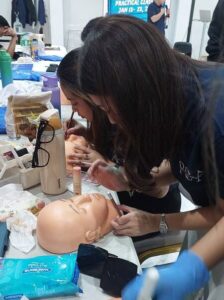
“When you have a funeral here,” she says, referring to the embalming school’s Metro Manila headquarters located inside the Cosmopolitan Memorial Chapels and Crematory on Araneta Avenue in Quezon City, “a lot of the families bring their own makeup for their loved ones to use. And they don’t take those back with them anymore.”
Mercado adds, “There are also personal users who don’t know where to bring their makeup. I’ve been replying to those inquiries online.”
In late 2024, PCAS got an invitation from TWBA ad agency for a collaboration that resulted in a donation drive with a strong social media presence starting early this year. It now regularly receives donated makeup products that Mercado then sifts through before dispatching for the reuse of students.
“The makeup brushes will be sanitized,” she says. “We’ve recently asked donors to send already-sanitized brushes.”
If donors can’t drop by or send their contribution to PCAS locations in Metro Manila and Cebu, Mercado suggests giving the preloved makeup products to small funeral homes nearest their locations. Those items are useful to embalmers in putting the final touches on their work

Embalming course
Dychangco-Reyes set up PCAS in 2004 at the behest of her father, Renato Dychangco Jr., who heads the company that runs Cosmopolitan Memorial Chapels and Crematory nationwide. His own father, Renato Sr., was a pioneer in the funeral industry in the Philippines, starting the family business in Cebu City in 1951.
After Dychangco-Reyes completed her studies in the United States, she underwent a training program sanctioned by the Department of Health (DOH). That became her foundation in creating a “higher order learning skills program” for students of embalming.
She can’t forget opening PCAS in Cebu City with 10 students and how the embalming school grew to have a branch in Metro Manila with a combined enrollment size of 62 in the recently concluded first batch for Year 2025.

The program runs for seven weeks to cover the 140-hour training mandated by DOH through its Committee of Examiners for Undertakers and Embalmers. It serves as a review course for those taking the licensure examination for embalmers that takes place every March and September at DOH-designated venues in Metro Manila.
For the first five weeks, students take theoretical lessons online every day from 5 p.m. to 7 p.m. They then do actual embalming of the required 10 bodies in the last two weeks of the program. This can be done in a PCAS facility in either Metro Manila or Cebu. If there are students who can’t travel to either locations, they can do the hands-on practice at any DOH-accredited funeral homes under the supervision of a licensed embalmer.
Among the subjects covered in the program are anatomy, physiology, microbiology, ethics, and finally, cosmetology. The students put on makeup on a dummy made of silicone because, as explained by Mercado, it would be “disrespectful to test on actual cases.”
The students are also taught how to use makeup products made of beeswax that are the international standard followed by major funeral homes like Cosmopolitan. Imported cosmetics are pricier than the regular makeup brands, but the quality and effect are definitely better, says Mercado.

The licensed embalmer, who was a journalism graduate before taking the course from another school, finds fulfillment in providing closure to bereaved families. The embalmer’s role, she says, is to “bring back” the looks of the deceased to the closest possible way to achieve the general compliment of “parang natutulog lang” (as if they were only sleeping). This somehow lessens the pain of those left behind.
Ferdinand Reyes, assistant to the Cosmopolitan president, agrees: “One of our objectives is to create a positive viewing experience, aside from the sanitary and preservation points of view.”
For recent embalming course graduate Aguedo Florence Jalin Jr., his new role underscores the “womb to tomb” perspective he values as a theology professor and canon lawyer.
“Now it’s complete because I can discuss the reality of life and the end of life,” he says. “We really have to handle the body with respect and dignity. What I appreciate here is, as an embalmer, you stand in between the grieving family and the remains of the dead body.”






